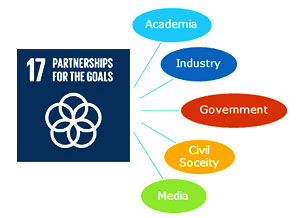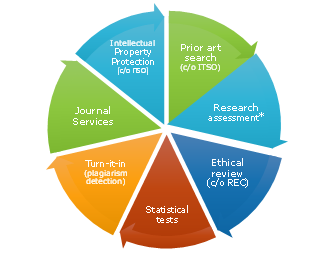UNIVERSITY OF THE VISAYAS
Research Agenda
Guide towards Education for Sustainable Development (ESD) through Research
The University of the Visayas (UV) envisions itself as a globally recognized private non-sectarian institution committed to achieving academic excellence and providing transformative and innovative education. At its core, UV's primary mission is to cultivate and embrace a sustainable research culture among students, faculty, and non-teaching staff, aligning with the institution's programs and community extension initiatives. Embracing the principles of Education for Sustainable Development (ESD) championed by UNESCO, UV aims to equip learners with the essential knowledge, skills, values, and capacity to confront complex global challenges, including climate change, biodiversity loss, unsustainable resource use, and inequality.
Furthermore, UV recognizes the pivotal role of research in this pursuit, emphasizing that research empowers individuals to make informed decisions and take proactive measures in effecting positive societal change and caring for the planet. By subscribing to UNESCO's ESD framework, UV remains dedicated to preparing its community for a future where they can contribute meaningfully to addressing interconnected and pressing issues on a global scale.
External Research
Fourth Industrial Revolution (4IR)
- Adoption of Cyber-Physical Systems (IoT and IoS)
- 4IR Drivers: High-Speed Mobile Internet, AI and Automation, Big Data Analytics, Cloud Computing
- Impact on Global Workforce and Industries
Assumptions on UV Research
- Addressing Vulnerability, Uncertainty, Complexity, and Ambiguity (VUCA)
- Research Approaches to VUCA
- Assumptions for Effective Implementation of the Research Action Plan
Internal Research
- University Research Structure
- Center for Research and Innovation
- Research Policies
- AAM 20.1 Research Capability Building
- AAM 20.2 Internally-Funded Institutional Research
- AAM 20.3 Good Research Practice
- AAM 20.4 Availment of Research Incentives
Action Plan
- Enhance research productivity through funding, incentives, and journal services
- Improve capability (knowledge, skills, and values) of UV researchers (faculty, students, staff) towards Education for Sustainable Development (ESD)
- Generate new knowledge for academia and society. Research production uses high-speed mobile internet (HSMI) and big data analysis (BDA)
- Promote and facilitate dissemination and utilization of research outputs. Cloud technology (CT) and high-speed mobile internet (HSMI) are new normal.
- Dovetail academic programs for the future workforce
- Engage in multidisciplinary research to provide solutions to societal problems.
Research Linkages

To provide solutions to real-world problems and to expand the frontiers of disciplinal knowledge, the University has to forge linkages with the following international and local stakeholders: academia, industry, government, civil society, and the media. In doing so, we address UNSDG 17 Partnerships for the Goals.
Research Related Services:
Priority Areas
Contact Information
Center for Research and Innovation


